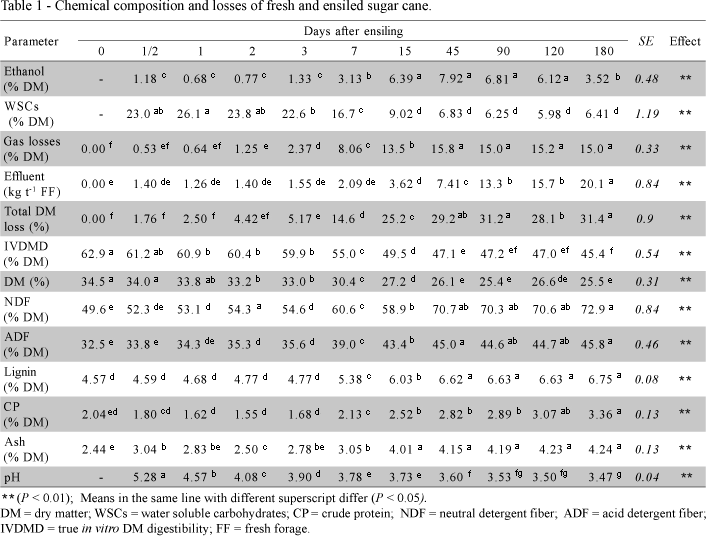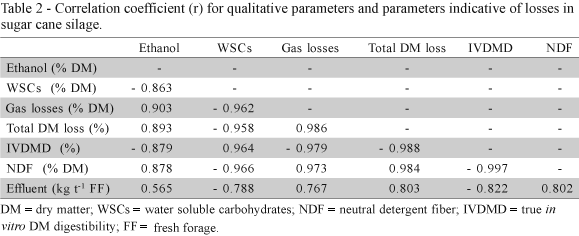Abstracts
Sugar cane silages are characterized by extensive yeast activity, alcohol production and great dry matter - DM - losses. Better knowledge of the fermentation process is fundamental to the development of efficient ensilage techniques for this forage. This study evaluates temporal changes in chemical composition, DM losses and epiphytic microflora in sugar cane silage. Mature sugar cane, variety RB835486 (12 months of vegetative growth), was hand harvested, processed in a stationary chopper and ensiled in 20-L plastic buckets provided with valves for gas release and a device for effluent collection. Laboratory silos were kept at ambient temperature and sampled after ½, 1, 2, 3, 7, 15, 45, 90, 120 and 180 days. Ethanol concentration reached 6.4% in DM after 15 days of ensilage, followed by 71% water soluble carbohydrates - WSCs - disappearance. Gas and total DM losses reached a plateau on day 45 (16% and 29% of DM, respectively). Yeast count was higher on the second day (5.05 log cfu g-1). Silage pH declined to below 4.0 on the third day. Effluent yield was negligible (20 kg t-1). DM content in the forage decreased (35% to 26%) from day 0 to day 45. The increase in ethanol concentration showed an opposite trend to WSCs and true in vitro dry matter digestibility reductions in the silage. Developing methods to control yeasts, most probably through the use of additives, will enable more efficient production of sugar cane silage by farmers.
ethanol; water soluble carbohydrates; losses; yeasts; bacteria

 Fermentation and epiphytic microflora dynamics in sugar cane silage
Fermentation and epiphytic microflora dynamics in sugar cane silage

